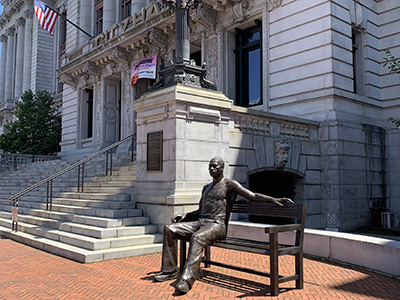Pillar 1: Social & Cultural
Every legislative session, policymakers across the country pass legislation to expand the criminal legal system — often under the banner of reform. Historically, these policies have expanded mass incarceration and surveillance, created exclusion, and delivered more violence. In response, grassroots leaders grew innovative community-based solutions.
For example, in the late 2000s, in response to a surge in murders, members of the Newark Anti-Violence Coalition did more than just denounce local killings. They worked out a series of peace agreements to prevent future conflicts from escalating into new spirals of death and trauma. And it worked, to the point that over time, the coalition’s ambitions evolved to target other structural forces contributing to tensions at the neighborhood level: housing, policing, and schools.
In other cases, local mobilizations of Newarkers evolved from corner groups and Sunday barbecues to broader, more ambitious political conversations centered on the importance of community dialogue, inclusion, and control.
 An example is the Newark Community Street Team’s South Ward Public Safety Roundtable. Every other week, for the past five years, members of the Newark community along with ecosystem partners, including Equal Justice USA, have grown and sustained a space where neighbors can air questions about safety that reposition them not as beneficiaries (or “targets”) of specific policies, but as owners, guardians, and managers of their environment.
An example is the Newark Community Street Team’s South Ward Public Safety Roundtable. Every other week, for the past five years, members of the Newark community along with ecosystem partners, including Equal Justice USA, have grown and sustained a space where neighbors can air questions about safety that reposition them not as beneficiaries (or “targets”) of specific policies, but as owners, guardians, and managers of their environment.
These innovations rest on a core truth: Those people closest to the problem and harm, those most likely to feel the pain of violence, are also best equipped to conceive of the strategies that will actually help solve the violence.


